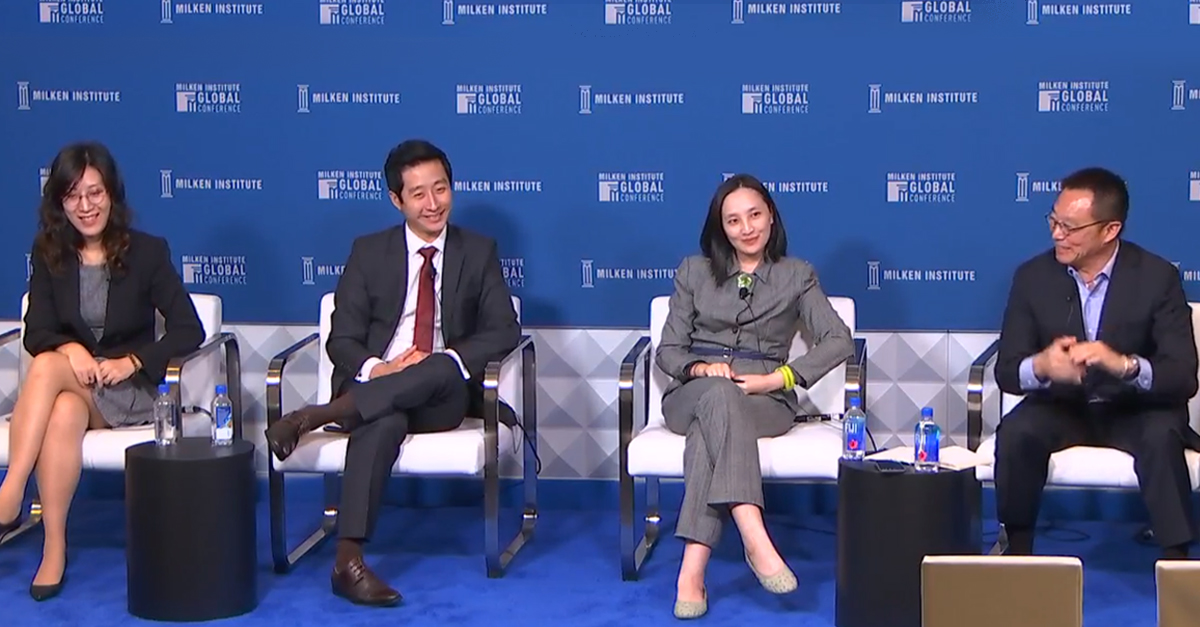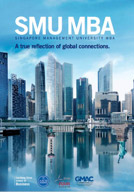
What do you get when you cross a PhD in Geophysics with a Master of Business Administration (MBA)? In the case of Dr Felicia Shaw, it got her the top prize at the 8th edition of the international Kellogg-Morgan Stanley Sustainable Investing Challenge, held last year.
She didn’t do it alone, of course, as her team also comprised of fellow MBA classmates He Maoying and Loh Teng Kai. Their combined knowledge and experience meant the perfect storm of expertise in the fields of banking, technology and the environment, to come up with the winning proposal for an ASEAN Storm Resilience Fund.
This was on top of the fact that last year marks the first time a team from Singapore Management University (SMU) has ever taken part in this competition, which annually draws graduate participants from prestigious schools around the world such as Harvard Business School and the London School of Economics.
“Because SMU had never participated before and there were no alumni with prior experience, we started preparations later than many other participants,” recalls Felicia, who previously worked in the Meteorological Service Singapore and currently leads a team working on data science in Singapore’s security sector.
“Nonetheless, all of us were enthused to participate because the competition was designed to tackle wicked problems affecting the world today – poverty, environmental degradation, social justice. I think many people in our class were fired up about it and there were many good ideas surfaced,” she continues.
Under the name Koponan Haiyan, Felicia and her teammates came up with their proposal which aims to help farming communities in Southeast Asia withstand extreme weather conditions. It combines grassroots-led microfinancing with a development impact bond enhancement feature, while at the same time facilitating investments in storm-resistant housing.
They developed this proposal under the guidance of Dr Ser-Keng Ang, Academic Director of the SMU MBA and Dr Jack Hong, Adjunct Faculty member at SMU Lee Kong Chian School of Business (LKCSB), and were given the opportunity to present these ideas at the prestigious Milken Institute Global Conference in Los Angeles last year as part of the prize.
“What people may not realise about the Sustainable Investing Challenge is that it’s not a contest of ideas on paper. The Challenge demands that your ideas can be implemented, and can shift the needle on the world’s most pressing problems. We had to talk to experts from the World Bank, from charities/NGOs, as well as put ourselves in the shoes of everyday people impacted by climate change,” describes Felicia.
Last year’s edition of the competition saw a total of 307 students from 65 schools submitting investment prospectuses for solutions in 34 countries. The main goal was to attract private sector funding to solve pressing global issues, and only 12 teams were shortlisted for the finals that took place in London.
The opportunity to join this competition came in the middle of the MBA programme Felicia was taking at SMU last year, in spite of the doctorate she already carried from the University of Oxford. It was actually somewhat an ironic move for her to take up the MBA, she admits, especially since she doesn’t identify herself as the “scholastic type”.
However, she explains that: “every time I’ve gone back to school I’ve looked for things that open up my horizons and make me a little wiser about the world we live in… When it comes to pan-societal issues like climate change or the rise of A.I., no-one can work in a bubble. I wanted to understand not only the perspectives of business leaders grappling with these same wicked problems but also take away best practices from leading companies. SMU gave me this exposure.”
Winning the competition aside, furthering her studies with the MBA has allowed her to be more incisive in her current job as well, especially since a lot of her work involves the fast-evolving fields of data science and A.I. “Things often get overwhelmed by hype,” says Felicia. “Doing an MBA gives me many tools to make clear-eyed assessments of the whole system and know what’s viable. It’s also sensitised me to spotting opportunities; I can quickly shift gears to move things along.”
Now that she has graduated from the MBA programme, her advice to potential students is this: “Don’t come to SMU to do more of the same. Do the MBA to shake up your beliefs, reassess your strengths and meet people who can grow together professionally with you. The SMU MBA has world-class faculty and you’re learning on a beautiful campus. But that’s not the best of it. The best part of the SMU MBA is not in being taught, it is learning almost by osmosis because you are surrounded by energy and opportunity.”
Speak to our Admissions Advisors
Singapore Management University
Lee Kong Chian School of Business
Graduate Programmes Office, Level 4
50 Stamford Road, Singapore 178899
Tel: +65 6828 0882
Join us at the upcoming events
Via Gerolamo Cardano, 1, 20124 Milano MI, Italy
1 Raffles Drive, Makati Avenue, 1224, Makati City
Bayerstraße 41, 80335 München, Germany
You may also be interested in
Executive Master of Business Administration (EMBA)
